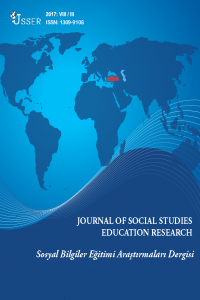Abstract
The United States is one of many countries currently undergoing significant changes in education institutions, particularly in K-12 settings. Most pronounced among these is the impact of unprecedented demographic changes on the curriculum and instruction provided in U.S. schools. Four other factors are also influencing curriculum and instruction including 1) policy changes, 2) emerging new technologies, 3) globalization, and 4) the refugee and immigration issue. Each of these areas provides challenges for both school settings and teacher educators. These challenges and the obstacles they create must be examined and specific recommendations must be developed for teachers, teacher educators, and policy-makers to assist in meeting each challenge. Among these recommendations, research shows that: 1) schools must change the structures, culture, and programs of curriculum and instruction to meet the needs of a diverse student body, 2) researchers in higher education institutions must focus their work to help the federal government, state leaders, and school districts decide upon the most appropriate reforms and changes to curriculum and instruction in school settings, 3) more resources from a variety of sources must be invested in technology-use training so teachers can better prepare students to use technology, especially in the context of new assessments, 4) educators should define and advance an agenda that prepares youth for global citizenship, and 5) the core values of educators must include respect, integrity, commitment and excellence, the promotion of diversity and gender equity, choice, and dignity for all students.
Details
| Journal Section | Curriculum & Instruction |
|---|---|
| Authors | |
| Publication Date | November 23, 2017 |
| Published in Issue | Year 2017 Volume: 8 Issue: 3 |


